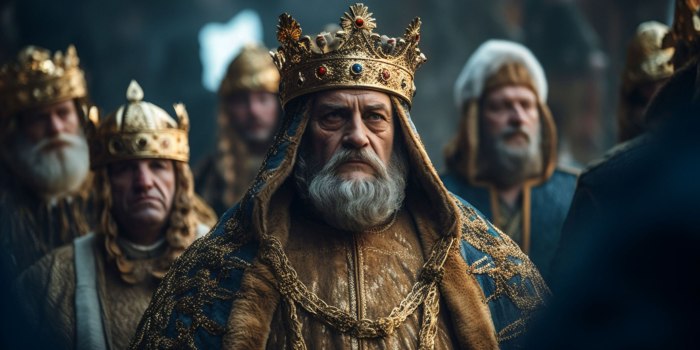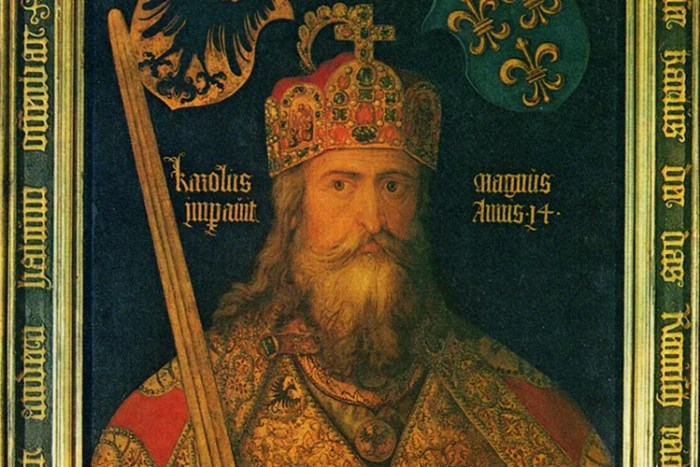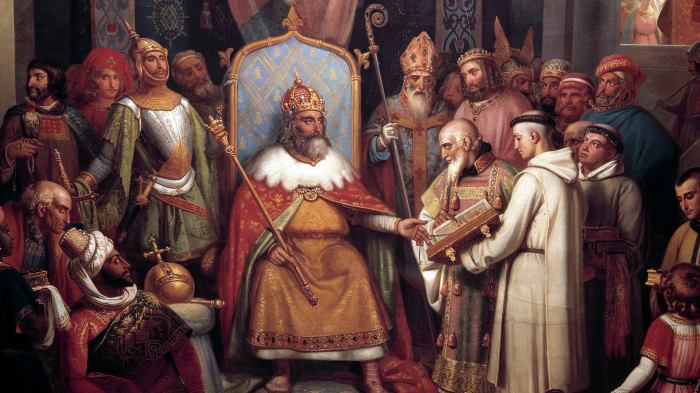Why was Charlemagne called the father of Europe? This question delves into the remarkable reign of one of history’s most influential monarchs, whose legacy shaped the political, cultural, and religious landscape of Europe. Charlemagne’s extraordinary achievements earned him the title “Father of Europe,” a testament to his profound impact on the continent’s development.
Charlemagne’s conquests unified vast territories, laying the foundation for a cohesive Western Europe. His administrative reforms and patronage of the arts and education fostered a cultural renaissance. As Holy Roman Emperor, he became a symbol of Christian unity, leaving an enduring mark on European history.
Charlemagne’s Unification of Europe: Why Was Charlemagne Called The Father Of Europe

Charlemagne’s reign marked a significant turning point in European history, as he played a pivotal role in unifying Western Europe. Through his military conquests, he expanded the Frankish kingdom to encompass a vast territory stretching from the Pyrenees to the Elbe River.
To consolidate his empire, Charlemagne implemented comprehensive political and administrative reforms. He established a system of counts and margraves to govern local regions, ensuring loyalty and efficiency. Additionally, he created a centralized court and bureaucracy to administer the vast empire.
Charlemagne’s Role in the Carolingian Renaissance
Beyond his military and political achievements, Charlemagne was also a patron of the arts, literature, and education. His reign ushered in a period known as the Carolingian Renaissance, which witnessed a revival of classical learning and cultural expression.
Charlemagne established schools and monasteries throughout his empire, inviting renowned scholars to his court. Notable figures such as Alcuin of York and Theodulf of Orleans played a significant role in promoting education and intellectual pursuits.
Charlemagne’s Legacy as a Unifier of Christian Europe
Charlemagne’s reign also played a pivotal role in the spread of Christianity throughout Europe. He actively promoted the conversion of his subjects and established close ties with the papacy.
In 800 AD, Charlemagne was crowned Holy Roman Emperor by Pope Leo III, marking a significant event in European history. This coronation symbolized the union of political and religious authority and laid the foundation for the later Holy Roman Empire.
Charlemagne’s Influence on European Culture and Society
| Category | Contributions |
|---|---|
| Architecture | Carolingian architecture, characterized by its distinctive round arches and vaulted ceilings |
| Art | Manuscript illumination and metalwork reached new heights of sophistication |
| Music | Development of polyphonic music and the Gregorian chant |
| Literature | Preservation and revival of classical Latin literature, as well as the emergence of vernacular literature |
Charlemagne’s Legacy and Historical Perspectives, Why was charlemagne called the father of europe
Charlemagne’s legacy has been interpreted and reinterpreted over time, reflecting the changing political and cultural landscapes of Europe.
In the Middle Ages, he was hailed as a paragon of Christian kingship and the embodiment of the Holy Roman Empire. During the Renaissance, he was seen as a model of classical revival and learning.
In the 19th century, Charlemagne’s legacy was re-evaluated in the context of rising nationalism and imperialism, with some historians portraying him as a precursor to German or French national identity.
Today, Charlemagne is widely recognized as a transformative figure in European history, whose reign shaped the political, cultural, and religious landscape of the continent.
FAQ Compilation
What were Charlemagne’s major contributions to European culture?
Charlemagne played a pivotal role in the Carolingian Renaissance, fostering the arts, literature, and education. He established schools and libraries, attracting renowned scholars from across Europe.
How did Charlemagne’s coronation as Holy Roman Emperor impact Europe?
Charlemagne’s coronation as Holy Roman Emperor in 800 AD marked a significant moment in European history. It symbolized the union of political and religious authority and established a precedent for the Holy Roman Empire that would endure for centuries.

